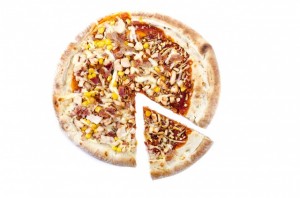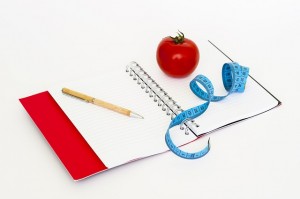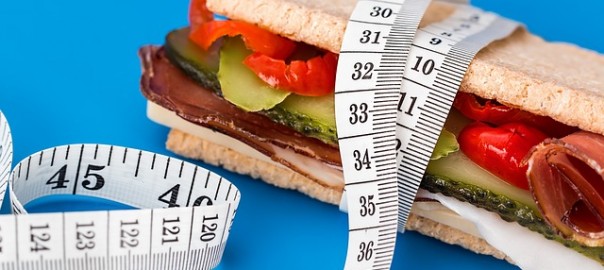Have you ever wondered what macros are and what are the cases when you should be tracking your macros and calculating your calories? Find out 3 reasons why you need to track your macros and calculate calories.
The difference between macronutrients and calories
Protein, carbohydrate and fat are macronutrients or macros for short. The food you eat consists of either protein, carbohydrates or fats. Tracking macronutrients or macros is basically counting how much carbohydrates, fats and proteins you consume daily.
Calories show the amount of energy in food. If you calculate the calories that you eat per day, you’ll be able to balance the energy you put in your body with the energy that you use. This is the way towards a healthy weight. The formula is easy: if you eat/drink more calories than you burn, you’ll gain weight. If you eat less calories than you burn, you lose weight. Sounds simple? It is. However, counting calories is not easy at first.
Eating healthy without counting calories and macros?

Every time I heard about clean eating, healthy foods or organic products while I was fat my head started spinning. Yes, I wanted to eat healthier, but I imagined it just meant eating veggies, fruits and dairy from a green farm with a rainbow over it. I had no idea where to find an eco-friendly farm that always has a rainbow over it. So I stuck to eating junk food and processed food, although I had no idea what processed food meant (for those of you who are still not sure, I suggest Wikipedia).
When you discuss weight loss, the first thing that is bought to your attention is that you should exercise and start calculating calories. It seemed such a big deal to start calculating calories: I needed to buy a kitchen scale, I need to write down how much of anything I ate, then add it up. Sometimes the package didn’t have any calorie info on it, or I needed to search online to see how much calories a carrot contains. It was soooo boring and time consuming that I didn’t bother with it. So to ease it up, I started exercising while I was fat, and paying attention that I eat less sweets. I substituted chocolate with a glass of milk. Instead of eating candy, I ate an orange. This is how my journey from fat to fit girl started.
How to start tracking calories
It took me years and years to get to a point where I started calculating calories and track macros. If you are starting now, and it seems so intimidating to you, but you have no idea how many calories you actually consume per day, then I have a great advice for you.
 Start with tracking your calories just once on one of your typical days. Track the calories in everything that you eat, drink: coffee, milk and sugar that you put in your coffee, snacks, juices, soda. Every calorie needs to be tracked, so you can see how many calories you consumed that day. I was surprised to see how much calories that one pizza slice had. Your goal here is to get a clear picture of your eating habits.
Start with tracking your calories just once on one of your typical days. Track the calories in everything that you eat, drink: coffee, milk and sugar that you put in your coffee, snacks, juices, soda. Every calorie needs to be tracked, so you can see how many calories you consumed that day. I was surprised to see how much calories that one pizza slice had. Your goal here is to get a clear picture of your eating habits.
Now there are many options to make tracking calories easy for you: online calorie trackers, apps for you phone, food scanners, smart plates that recognizes the foods and calculates the calories they contain. I use MyFitnessPal, a calorie counter app.
When and why track calories and macros
Tracking calories and macros can help you achieve your weight goals. But tracking calories and counting macros is not for everyone. Let’s see the reason why you should track calories and macros and what are the cases in which you should not track calories and macros.
Why should You track calories?
- Get a clear picture of how much you are eating
- Helps you get rid of bad eating habits
- Makes you able lose weight or gain weight
However, if at any point you feel like tracking calories is stressing you out or bringing back your eating disorder or obsessive behaviors or thoughts, then you should stop tracking calories and macros.
Don’t track your calories in the following cases:
- feel like tracking calories is way too stressing
- Your eating disorders is coming back by counting calories
- You have obsessive thoughts or behavior
- You just want to be healthy and don’t care about weight loss
Why should You start tracking macros?
- To stop losing muscle instead of fat during weight loss
- To gain muscle instead of fat
- Want to become lean
Don’t count your macros if:
- You just started your weight loss journey and this is your first time counting calories – It will be way to intimidating to track your macros as well, and you’ll quit before you even seen the first results. For the time being, just concentrate on making healthy food choices and changing your bad eating habits while engaging in regular exercise activity.
- You just want to be healthy and don’t want a bodybuilder body
- You tracked your macros for so long that you can tell how much of a protein a bite of that chicken has
Want to start tracking your macros and calories? Start here>>>
Just remember: counting calories and meeting macros should be used to get closer to living a healthy life. If it’s putting too much stress on you in any way, then don’t do it. The important thing in live is for you to be balanced and content, and you should feel good about your healthy choices in life and not feel like you are punishing yourself.
Want more tips on living a healthy life? Click here for my weekly updates>>>
